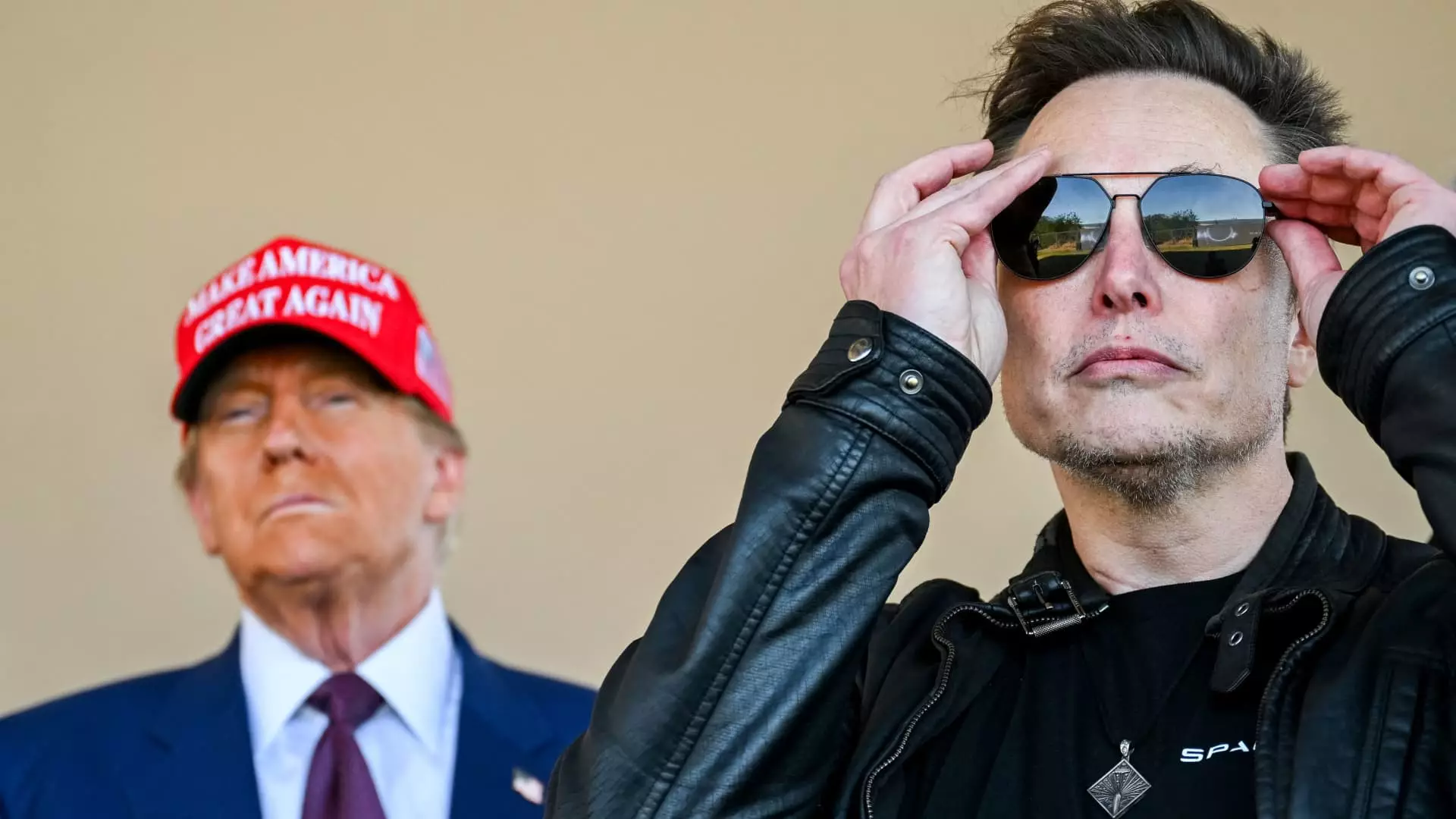Elon Musk is a name synonymous with innovation and disruption. His diverse portfolio includes prominent companies such as Tesla, known for pushing the boundaries of the automotive industry with electric vehicles; SpaceX, which is revolutionizing space travel; and Neuralink, a pioneer in brain-computer interface technology. Musk’s influence stretches beyond his own ventures, as many of these companies hold substantial federal contracts that significantly contribute to their financial success. For instance, SpaceX has reportedly secured over $19 billion from governmental contracts, marking it as a key player in both the commercial and governmental sectors.
As the political landscape fluctuates, Musk stands to gain from a potential second presidency under Donald Trump. The implications of such a political shift could yield an influx of federal contracts, further establishing Musk’s businesses as staples in the governmental framework. According to FedScout, the current trajectory indicates that SpaceX could anticipate billions in annual revenue from government contracts for the foreseeable future. This anticipated growth highlights the intertwined relationship between Musk’s companies and federal funding, raising important questions about accountability and oversight.
In the context of business operations, deregulation is often lauded for its potential to foster innovation and expand economic growth. Musk has openly criticized government regulations that he claims inhibit technological advancement. Recently, he was appointed to co-lead a government efficiency initiative known as the Department of Government Efficiency (DOGE), alongside former Republican presidential candidate Vivek Ramaswamy. This initiative aims to streamline regulatory frameworks, minimize administrative redundancies, and identify cost-saving measures. The duo’s assertion that many existing regulations circumvent Congress and should be dismantled reflects broader concerns about the balance of power between private enterprise and government oversight.
The notion of reducing federal oversight poses significant challenges, particularly for sectors that directly impact national security and public welfare. A worrying example cited is the Pentagon, which has struggled to pass consecutive audits. Critics argue that reducing regulatory scrutiny could exacerbate issues related to waste, inefficiency, and corruption within government agencies. The assertion by technology journalist Lora Kolodny that Musk’s business empire would benefit from decreased governmental oversight underscores a pivotal dilemma: where does the line lie between promoting innovation and ensuring accountability?
Musk’s formidable influence over both technological innovation and public policy raises crucial discourse about the ethical dimensions of such power. While advocates for deregulation argue that it can spur business growth and creativity, the potential for unchecked corporate influence is fraught with consequences. The broader societal impact of consolidating power in the hands of a few individuals can lead to decisions that favor corporate interests over public welfare. As Musk continues to shape the future of industries ranging from automotive to aerospace, the critical dialogue around the implications of his extensive reach in both the market and political arenas remains vital. Understanding the balance between enabling innovation while safeguarding public interest will be increasingly important as these dynamics evolve.


Leave a Reply